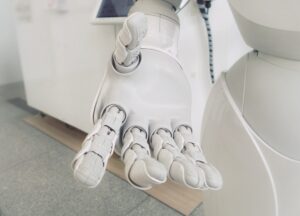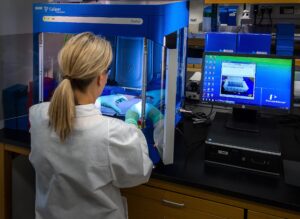
Artificial intelligence (AI) has become a buzzword in recent years, with many people claiming that it will revolutionize the world as we know it. But what exactly is AI, and what impact will it have on society? In this article, we will demystify AI and explore its potential impact on society.
What is Artificial Intelligence?
AI refers to the ability of machines to perform tasks that would typically require human intelligence, such as learning, reasoning, and problem-solving. AI is powered by algorithms that are designed to learn from data and make predictions or decisions based on that data. There are many different types of AI, including machine learning, deep learning, natural language processing, and robotics.
Impact of AI on Society
AI has the potential to transform society in many different ways, both positive and negative. Here are some of the ways in which AI could impact society:
Automation of Jobs: One of the most significant impacts of AI on society is its potential to automate jobs. AI-powered machines can perform many tasks more efficiently and accurately than humans, which could lead to the displacement of human workers in many industries. However, some experts argue that AI could also create new job opportunities in fields such as data analysis and machine learning.
Improved Healthcare: AI has the potential to revolutionize healthcare by improving diagnoses, predicting outbreaks, and creating personalized treatment plans. AI-powered tools can analyze vast amounts of medical data to identify patterns and insights that humans may not be able to detect. AI could also help to reduce medical errors and improve patient outcomes.
Increased Efficiency: AI can help to increase efficiency in many industries by automating processes and reducing the need for human intervention. For example, AI-powered tools can optimize supply chain management, improve customer service, and reduce waste in manufacturing.
Ethical Concerns: One of the main concerns with AI is that it could be used to make decisions that are discriminatory or unethical. AI-powered algorithms can learn from biased data and perpetuate that bias in their decision-making. Additionally, there are concerns about the potential for AI-powered machines to become autonomous and make decisions without human oversight.

Here are some key points highlighted from the article:
- AI refers to the ability of machines to perform tasks that would typically require human intelligence, such as learning, reasoning, and problem-solving.
- AI has the potential to transform society in many different ways, both positive and negative, such as automation of jobs, improved healthcare, increased efficiency, and ethical concerns.
- Automation of jobs is one of the most significant impacts of AI on society, where AI-powered machines can perform many tasks more efficiently and accurately than humans.
- AI has the potential to revolutionize healthcare by improving diagnoses, predicting outbreaks, and creating personalized treatment plans. AI-powered tools can analyze vast amounts of medical data to identify patterns and insights that humans may not be able to detect.
- AI can help to increase efficiency in many industries by automating processes and reducing the need for human intervention.
- One of the main concerns with AI is that it could be used to make decisions that are discriminatory or unethical. AI-powered algorithms can learn from biased data and perpetuate that bias in their decision-making.
- It is important to understand the potential impacts of AI and to develop strategies for managing those impacts. By demystifying AI and exploring its potential impact on society, we can work towards a future in which AI is used responsibly and for the benefit of all.
- AI is powered by algorithms that are designed to learn from data and make predictions or decisions based on that data. There are many different types of AI, including machine learning, deep learning, natural language processing, and robotics.
- AI has the potential to create new job opportunities in fields such as data analysis and machine learning, as well as to increase productivity and efficiency in many industries.
- One of the main challenges of AI is the ethical considerations that arise when machines make decisions. There are concerns about how to ensure that AI systems are transparent, accountable, and unbiased.
- AI can help to address some of the world’s most pressing problems, such as climate change and poverty. For example, AI-powered tools can be used to predict and prevent natural disasters, optimize energy consumption, and improve access to education and healthcare in developing countries.
- The development of AI also raises questions about the future of work and the role of humans in a world increasingly dominated by machines. It is important to ensure that the benefits of AI are distributed fairly and that humans remain at the center of decision-making processes.
- Governments, businesses, and other organizations need to work together to ensure that AI is developed and deployed in a responsible and ethical manner. This includes investing in research and development, establishing regulations and guidelines, and promoting transparency and accountability in AI systems.
- Overall, the potential impact of AI on society is vast, and it is important to approach its development and deployment with caution and foresight. By understanding the potential benefits and risks of AI, we can work towards a future in which it is used to enhance human potential and address some of the world’s most pressing challenges.
Conclusion
AI has the potential to transform society in many different ways, both positive and negative. It is important to understand the potential impacts of AI and to develop strategies for managing those impacts. By demystifying AI and exploring its potential impact on society, we can work towards a future in which AI is used responsibly and for the benefit of all.






